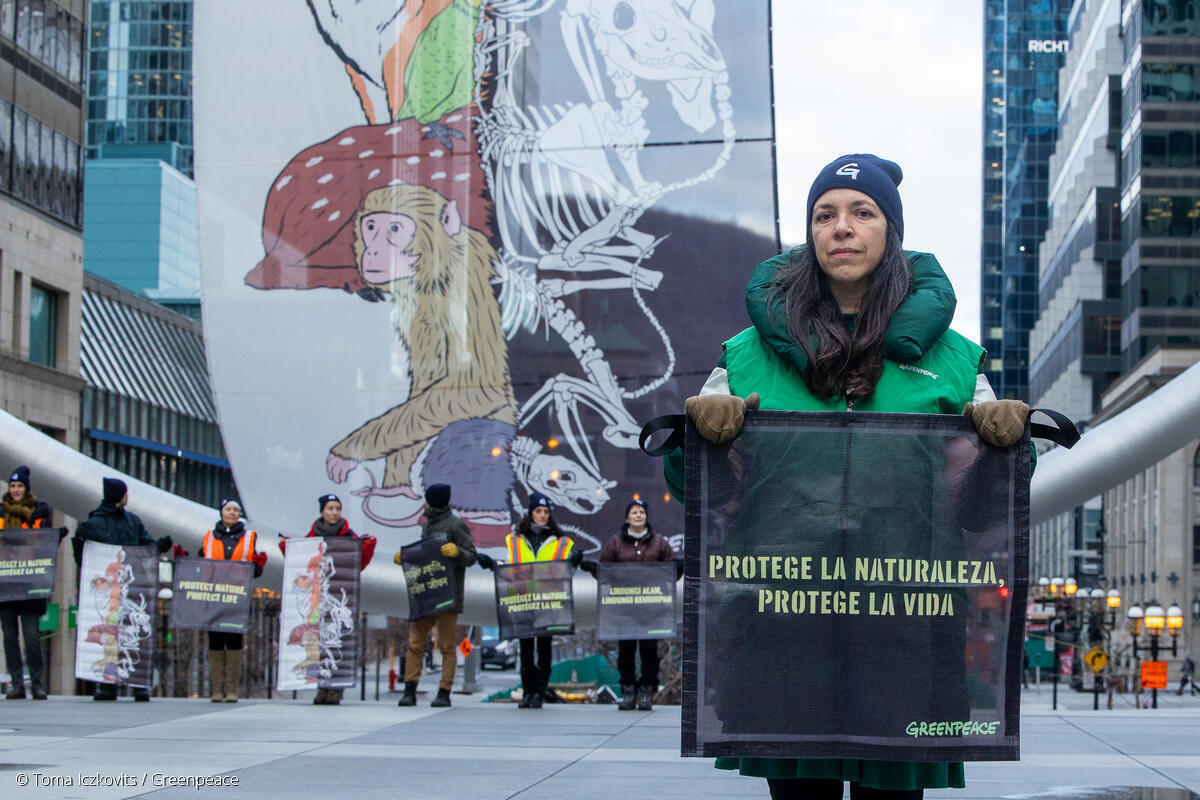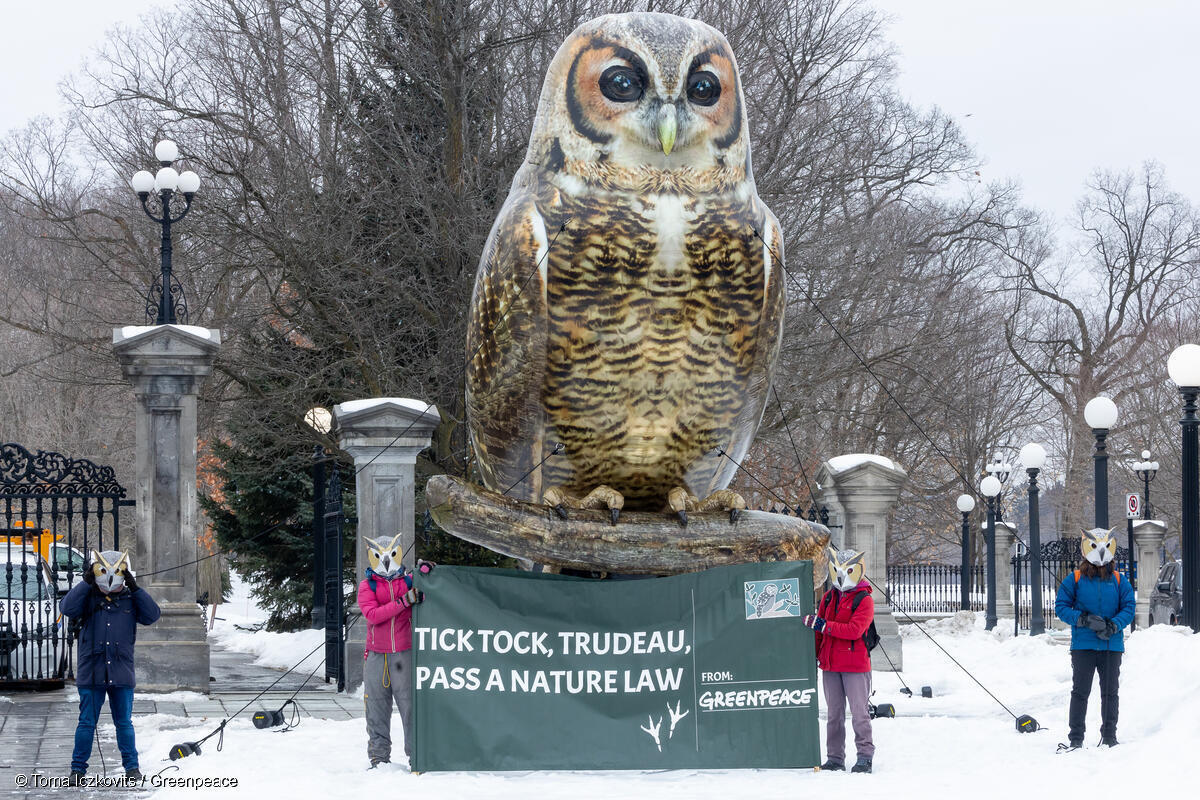Vancouver – Today, Greenpeace delivered a petition calling for the protection of the global ocean commons to the constituency office of Joyce Murray, the Minister of Fisheries, Oceans and the Canadian Coast Guard. It has been signed by over 4 million people worldwide, including more than 95,000 in Canada, urging global governments to protect our oceans and support a strong Global Ocean Treaty at the UN Intergovernmental Conference (IGC4) this March. This comes just after Prime Minister Trudeau announced that Canada has joined the High Ambition Coalition on Biodiversity Beyond National Jurisdiction aimed at advancing the protection of marine biodiversity, coinciding with the One Ocean Summit.
From March 7-18, the final round of negotiations on the United Nations Treaty for Marine Biodiversity Beyond National Jurisdiction (BBNJ), commonly known as the Global Ocean Treaty, will take place in New York. Greenpeace, alongside scientists, other ocean conservation organizations, and a growing number of global leaders assert that a strong Treaty can equip governments with the tools to protect marine biodiversity across the high seas, ensure activities beyond national jurisdiction are equitably managed, and help us address some of the greatest challenges facing our planet: biodiversity loss and the climate crisis. Greenpeace believes that strong political leadership is urgently needed to agree on an ambitious Treaty at IGC4 as early as possible in 2022.
The global ocean commons, or the high seas, cover nearly half of the planet. They provide critical support for life on Earth and play a key role in regulating the climate. Yet, they are amongst the least protected areas. Currently, only 1% of the high seas are protected. Greenpeace has been campaigning for the creation of a network of ocean sanctuaries – fully protected areas, covering at least 30 percent of the global oceans by 2030 (30×30). Over 100 global governments, including Canada, now support the 30×30 goal; however, current poor management and governance structures impede global governments’ ability to deliver this target in the high seas.
In addition to Canada’s 30×30 support, it has signed the Leader’s Pledge for Nature at the UN Biodiversity Summit in September 2021. Commitments by the Trudeau government to halt and reverse biodiversity loss are also outlined in the mandate letters to Ministers Murray and Guilbeault. Greenpeace has urged the federal government to ensure its position going into the IGC4 meeting reflects these commitments and the urgency of the dual crises of climate change and biodiversity loss. Ministers Mélanie Joly, Joyce Murray, and Steven Guilbeault all share the responsibility for the Canadian delegation attending the upcoming conference.
Sarah King, Head of Oceans and Plastics Campaign, said:
“With the convergence of the marine biodiversity and climate crises, time is running out for our oceans. World leaders have a chance to make history and agree on an ambitious Global Ocean Treaty that could chart a course towards recovery and resilience for marine life. The science is clear: to save wildlife, address food insecurity and tackle the climate crisis, we need to protect at least a third of our global oceans by 2030. Securing a strong treaty could be transformative in doing that, and we need Canada to champion this outcome in March. Over 4 million people worldwide, including more than 95 thousand Canadians, support this action and will be expecting global governments to make history by properly protecting the oceans.”
ENDS
For more information, please contact:
Brandon Wei, Communications Officer, Greenpeace Canada
[email protected], +1 778 772-6138



